CLE and Attorney C
As part of its Continuing Legal Education (CLE) program, the Office of Legal Education has a Videotape Lending Library of tapes which are available for CLE credits in all states, except Delaware. Included in the OLE library is a two hour ethics training video entitled “Ethics Show with Mike Levy.” In his video seminar, Levy, Chief of the Computer Crime Section, reviews the Rules of Professional Conduct and addresses several applicable statutes, rules, regulations and cases, with particular attention to what the OLE describes as “the thorniest recurring ethical issues: Rule 3.3 on candor toward the tribunal; Rule 3.6 on publicity; Rule 3.8 on the special responsibilities of a prosecutor; and Rule 4.2 on contacts with represented parties.”
The entire lecture, produced by the DOJ in 2002, is long overdue for a formal showing in the Durham County District Attorney’s Office. However, one passage holds particular interest for those who took note of NC State Bar DHC Chair F. Lane Williamson’s recent reference to a seemingly obscure Colorado Supreme Court decision from May of 2002: In the Matter of Attorney C. At the April 13 DHC hearing on Nifong's motion to dismiss some of the ethical charges against him, Williamson announced his intention, absent any better suggestions, to employ the standards set forth by the Colorado Supreme Court as his guide in determining whether Defendant Nifong had violated Rule 3.8(d) which mandates, according to the model rule, that a prosecutor shall:
“make timely disclosure to the defense of all evidence or information known to the prosecutor that tends to negate the guilt of the accused or mitigates the offense, and, in connection with sentencing, disclose to the defense and to the tribunal all unprivileged mitigating information known to the prosecutor, except when the prosecutor is relieved of this responsibility by a protective order of the tribunal.”In part, the Colorado Supreme Court based its ruling on the American Bar Association model rul above and the ABA's Standards for Criminal Justice. The Colorado Supreme Court quotes the ABA standards as follows:
Per the Colorado case, Williamson noted that "timely" disclosure could rightly be defined as meaning prior to the next critical stage of the case, rather than at a “reasonable time" before trial as Defendant Nifong argued. To that end, the Colorado ruling reads:The ABA Standards for Criminal Justice: Prosecution Function and Defense Function 3-3.11(a) (3d ed. 1993) provide that:
A prosecutor should not intentionally fail to make timely disclosure to the defense, at the earliest feasible opportunity, of the existence of all evidence or information which tends to negate the guilt of the accused or mitigate the offense charged or which would tend to reduce the punishment of the accused.
"We do not accept the argument that the evidence need only be disclosed in advance of a proceeding at which that evidence would be specifically determinative. Rather, we conclude that if evidence is material to the outcome of the trial, then the prosecutor must disclose that evidence in advance of the next critical stage of the proceeding – whether the evidence would particularly affect that hearing or not."If the video by Mike Levy featured in the program is any guide, the Continuing Legal Education program offered by the Office of Legal Education uses exactly that Colorado standard and features the same case proposed by Williamson as its guide while comparing the ethics rules to the lower standard of due process.
A handout which accompanies the training video is a reminder of the April 13 DHC hearing:

 Had attorneys Dudley Witt, David Freedman, and Mike Nifong viewed this training session prior to the hearing, they might have saved themselves some public embarrassment caused by their "medieval" argument. Other relevant portions of the ethics seminar would have served Defendant Nifong well had he viewed them prior to March 2006:
Had attorneys Dudley Witt, David Freedman, and Mike Nifong viewed this training session prior to the hearing, they might have saved themselves some public embarrassment caused by their "medieval" argument. Other relevant portions of the ethics seminar would have served Defendant Nifong well had he viewed them prior to March 2006:







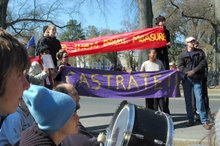




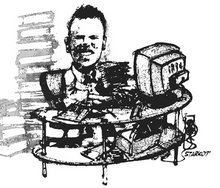
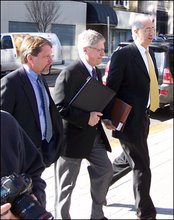
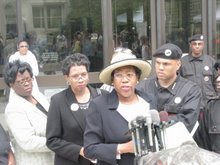
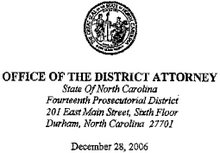
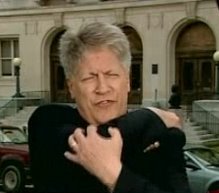

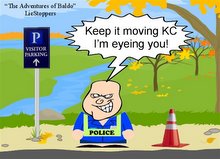

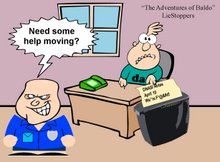

















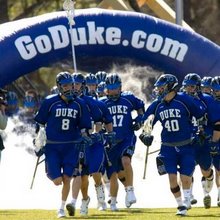

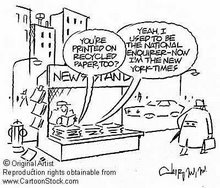

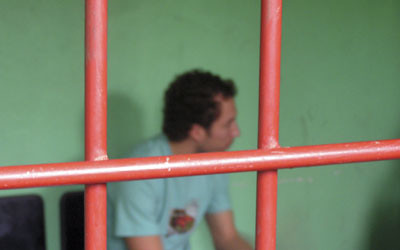
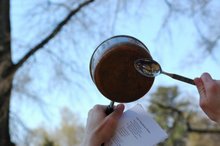


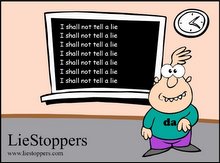






9 comments:
Again Liestoppers has shown its brilliance. When the final story of this case is told there will be two Blogs that stand above the Press, Liestoppers & Durham in Wonderland.
This post today explains in no uncertain terms what tortured logic Nifong was basing his defense of withholding exculpatory DNA evidence.
This case is so shocking. To think on April 11 before the NCCU Forum Nifong was saying this case was going forward to a hearty round of applause when he knew no Lacrosse player's DNA was found and multiple other male DNA was!
What Evil lurks in that man's soul!
Final thoughts is a hoot and so true.
Too bad Nifong didn't read the final thought section...the part about his license and livelihood. Good stuff.
Mikey violated every rule listed!
Does anyone know, prior to the Duke hoax, what was the last case Mikey personally handled? Perhaps he had always conducted himself inappropriately? Curious to review his immediate past history...
All of his past cases need to be reviewed...
The astonishing part about this, to me, is that this material was apparently produced back in 2002. It sounds almost like it was made now, in direct response to this case...
The bar prosecutors should make "timely disclosure" to Nifong and his team of this video, so that they can know what arguments not to use at Nifong's hearing.
Carolyn says:
Liestoppers - you little dears, don't waste your time telling Nifong what to read. The man is so stupid over the printed word that he actually quoted a cite - Argurs - in his own brief to prove his innocence - only for the Court to inform that it actually proved his guilt!
If you put CLE in braille, Nifong wouldn't get it.
Is there a rule he didn't break?
Doesn't appear to be
Another book about the event is coming out the same day as Coach Presslers. I for one am going to be very careful about what books I buy and who wrote them. No support of MSM - particularly the New York Times for me.
Post a Comment